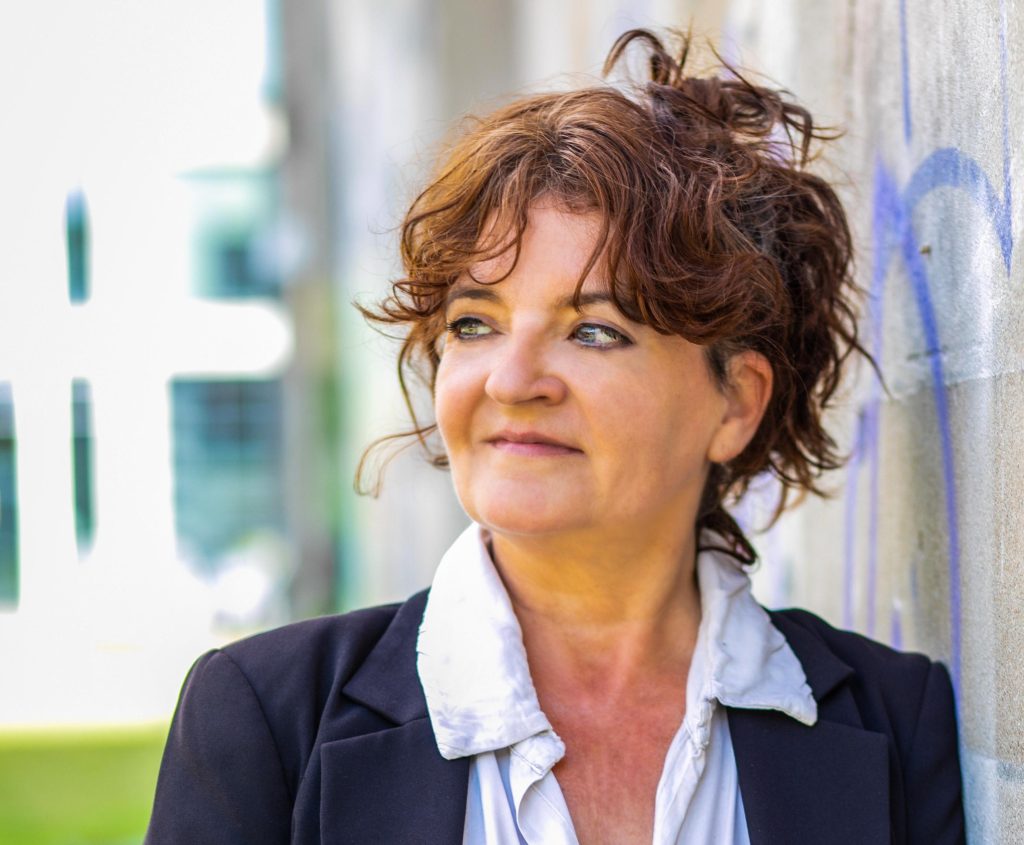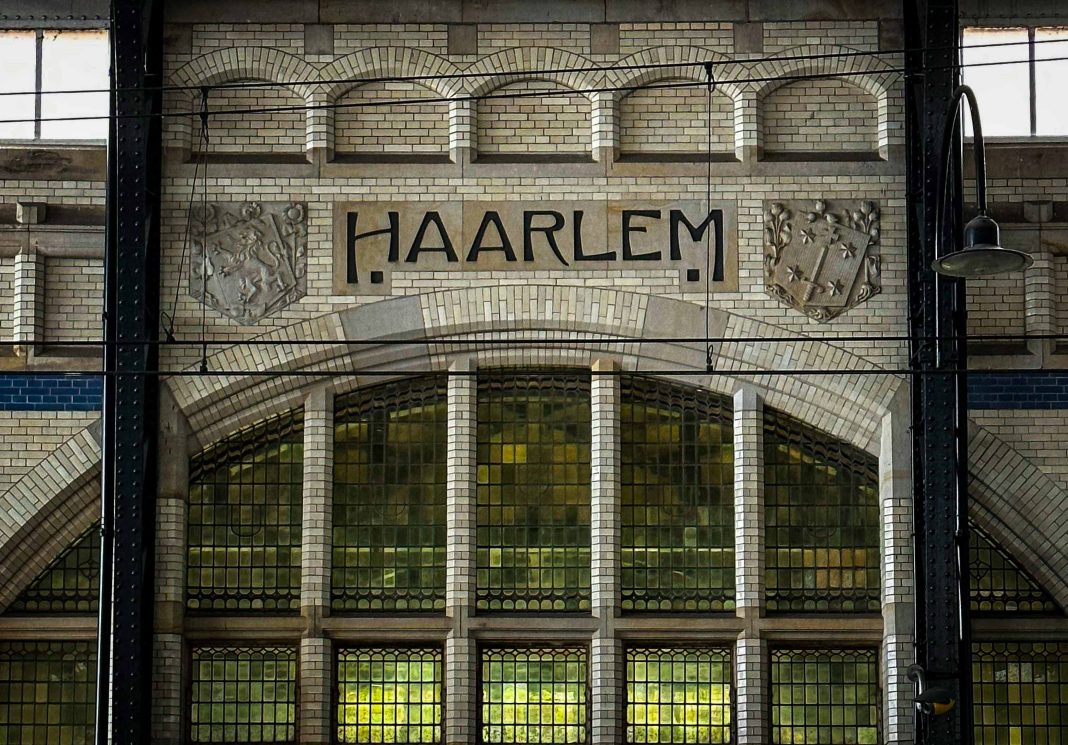In 2021, the city of Haarlem, in the Netherlands, submitted a draft to became the first city in the world to ban meat advertising in public spaces. The move was a lightning rod for media interest from around the globe. But, while backlash from some corners was swift, the real surprise was that the positive reactions to the ban far outweighed the negative. We talked to Ziggy Klazes, the GroenLinks councillor who drafted the ban, to ask whether the tide is turning on the toxic debate around meat and why cities should be bolder in their climate ambitions.
As the Netherland’s 13th largest city, it’s not often that Haarlem makes the headlines – nationally or internationally. This picturesque city in the country’s west is best-known as a stop-off on the way to the capital, Amsterdam.
So it came as some surprise when Haarlem became the subject of worldwide attention because of a move to ban adverts for meat in public areas.
In September 2021, the city took the unprecedented step of adding meat produced by industrial farms to a list of products and services for which advertisement on public buses, transport shelters, and billboards is prohibited because of their contribution to climate change – including leisure flights and fossil fuel extraction.
But, for councillor Ziggy Klazes, who drafted it, the intention wasn’t to garner international attention; it was a matter of “consistency”.
“When I wrote the motion, I was not in any way aware of what was going to happen. For me, this was only a logical step.”
“We’re only a small city in a small country. There’s not a lot that we can do about climate change, but the one thing we can do is be consistent. You can’t, on the one hand, say (as we do in Haarlem), ‘We will do whatever it takes to stop climate change,’ and at the same time earn money by renting out your public space for advertising products that do exactly the opposite.”
The Meat in the Middle
Unsurprisingly, some reactions to the move were heated, particularly given the politically charged debate around meat consumption in Europe and elsewhere.
In the face of evidence that the meat industry is harming both human and planetary health, politicians who have dared to question our penchant for red meat have been cowed; national governments have bowed to pressure from the livestock lobby to water down or kill unfavourable legislation; and institutions recommending steps to reduce meat consumption have been the subject of intense public backlash.
Detractors in the Netherlands, Europe’s largest meat exporter, were particularly vocal in their criticism of the move.
Sander van den Raadt, the leader of the Trots Haarlem group, described the ban in the following terms:
“It is remarkable that the municipality of Haarlem is holding a large poster campaign that you can be yourself in Haarlem and love whoever you want, but if you like meat instead of soft grass, ‘the partronising brigade’ will come and tell you that you are completely wrong.”
But Ziggy also fielded outraged calls and media enquiries from around the world, and even a bemused call from a popular radio show all the way from Australia.
“They thought we banned all meat advertisements and even eating meat itself; it was blown up out of proportion.
“I’m in no way saying that people should stop eating meat completely. That’s exactly what I’m not saying. I’d like them to, but that’s just a personal thing. Realistically, that’s not going to happen, and we’re not asking for that with this ban. It’s about being aware that when you take your leisure flight, use fossil fuels, and eat meat from the meat industry you contribute to global warming.”

Towards a Climate of Consensus
Criticism was to be expected, particularly on issues of freedom of speech and expression, but Ziggy says she was cheered by the number of messages of support, which were overwhelmingly in the majority.
“It took about 10 years to get a ban on [advertising] tobacco products. And exactly the same arguments were used when this was first in question.” In fact, she points out, according to the Dutch constitution, the ban is not a limitation of freedom of speech – that law “explicitly excludes advertisements”.
“But, by the reactions I’ve gotten from media all over the world, I think people are really ready to do this and actually make a statement – to say, ‘We cannot tempt people to do the ‘wrong’ thing or to buy the products that enhance climate change, and we should really put a stop to that.’”
Support for the move hasn’t been limited to the “usual suspects” either.
“I think we’re at a point where people actually no longer accept the things that are thrown at us, like advertisements for products that have a negative effect on our climate. People do tend to question it more. And people are very much more aware. It’s no longer just my friends in my bubble.”
“There is definitely, as I can feel it, a shift going on here in Holland. It’s no longer just a left-wing issue.”
Ziggy acknowledges that there are those who will characterise the ban as merely symbolic. Contrary to what some believed, the motion does not ban eating meat, nor has such a move been shown to reduce consumption. More important, to her mind, is the need to start the conversation and “question the normality of producing and consuming meat in the amount that we currently do”.
“Are people actually going to eat less meat? It’s not proven. They might do, but what’s even more important is the discussion that followed afterwards and went worldwide – that people are questioning these ads and the way we tempt people to still go on and make choices that affect the climate in a negative way.”
A Call to Action
Since we spoke to Ziggy, the policy has been written and, in June 2024, was accepted by the majority of the council. It will be implemented later in the year, bringing the ban into full effect.
“Our city government has actually gone a step further than what we asked for by including a ban on advertisement for fish products,” Ziggy explains. That means that “Haarlem is the first in Holland to write policy that enables the city to ban advertisements for meat, as well as fish, fossil fuels, and leisure flights”.
Before the ban comes into force, Ziggy is still eager to take advantage of the momentum behind the motion and keep the dialogue going.
“I really need other politicians, from all over Europe and all over the world, to do the same thing – to know that you can, as a local politician, actually make a difference.”
In fact, Ziggy points out, regional politics is “immensely important” because it’s possible to “create local policy without having to wait for the national government”. It may be a slow process, she admits, but it still happens faster than at a national scale, especially when governments “are hesitant to take measures to stop climate change.”
Ziggy’s message to her counterparts is clear: only by more of our representatives going out on a limb will we begin to see action on climate change. And, while public scrutiny is to be expected, there’s strength in numbers.
“Be brave. Nothing bad has happened to me. People have been very nasty, but I don’t lose any sleep over it. The majority of the reactions have been very positive and very constructive. And a lot of people are trying to see what they can do in their own country and in their own city to follow our example. I am hopeful for the future.”

